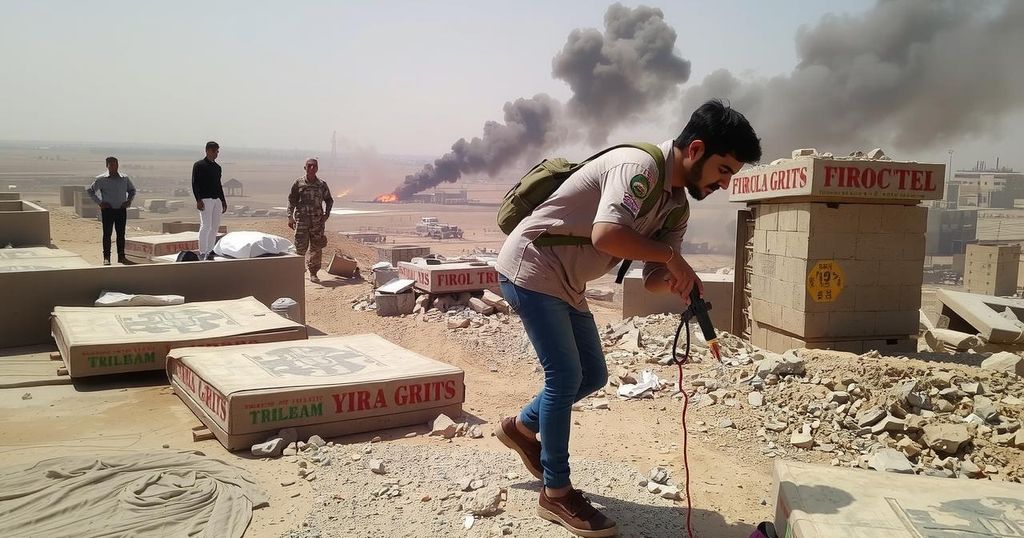On December 12, an Israeli drone strike in Khiam, Lebanon, resulted in one fatality and two injuries shortly after Israeli troops withdrew from the area. The Lebanese Armed Forces were preparing for civilian return while monitoring begins under a ceasefire agreement. Ongoing Israeli military actions since the ceasefire have raised concerns about violations of Lebanese sovereignty and regional stability.
On December 12, an Israeli drone strike on the southern Lebanese town of Khiam resulted in the death of one individual and injuries to two others. This attack occurred shortly after Israeli forces completed their withdrawal from the area, during a phase where the Lebanese Armed Forces were cleaning up debris in preparation for civilian return. The Lebanese National News Agency reported this incident, emphasizing that citizens have been advised to refrain from entering Khiam until official clearance is granted.
The events unfolded one day following a full Israeli troop withdrawal, as stipulated by a ceasefire agreement that requires the withdrawal of Israeli forces from southern Lebanon within 60 days. Nevertheless, Israeli military presence continues in various regions of the south, while the Lebanese military is mandated to dismantle all Hezbollah infrastructure south of the Litani River under UN Resolution 1701. The entry of arms into Lebanon is also restricted under this agreement, and a monitoring mechanism, involving France and UNIFIL, is led by the United States to address any violations.
Despite this oversight framework, Israel has faced no accountability for airstrikes and attacks it has conducted against Lebanon since the ceasefire’s enactment on November 27. Hezbollah has reacted to these incursions with limited retaliatory actions, including a recent rocket attack, which was met with extensive Israeli airstrikes throughout southern Lebanon. Prior to the recent drone strike, Israeli forces had conducted multiple attacks that resulted in civilian casualties, culminating in prior assaults that claimed several lives in southern Lebanese areas such as Marjayoun and Beit Lif.
Hezbollah Secretary-General Naim Qassem previously stated that the organization is currently allowing the ceasefire agreement a chance to prevail, despite ongoing Israeli violations of Lebanese sovereignty.
The recent escalation of violence between Israeli forces and Lebanese groups, particularly Hezbollah, in southern Lebanon arises from the ongoing geopolitical tensions in the region. The ceasefire agreement established after hostilities stipulates the withdrawal of Israeli troops from Lebanon and the dismantling of Hezbollah’s military infrastructure. However, persistent airstrikes by Israel and limited retaliatory actions by Hezbollah suggest a fragile peace. UN Resolution 1701 seeks to monitor compliance and prevent arms proliferation, but the effectiveness of this resolution is called into question amid continued violations.
In summary, the situation in southern Lebanon remains precarious, characterized by Israeli military actions and Hezbollah’s responses, all occurring within the framework of a ceasefire designed to promote peace and stability. The recent drone strike in Khiam underscores the potential for violence even after formal withdrawals and agreements. The effectiveness of monitoring mechanisms to enforce compliance with the ceasefire is crucial to prevent further escalations and ensure the safety of civilians in the region.
Original Source: thecradle.co






